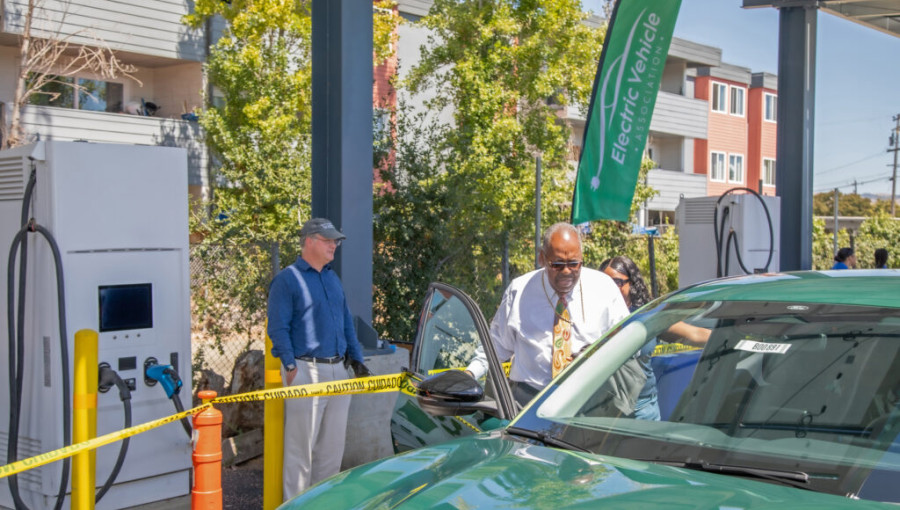Glad Tidings International Church in Hayward, California, is leading an innovative effort among Black churches to embrace renewable energy and community resilience through the launch of a Community Decarbonization Hub. This hub will feature a solar-powered building, battery storage, and multiple electric vehicle (EV) charging stations, positioning the church not only as a place of worship but also as a vital resource in times of crisis, such as power outages and natural disasters. This initiative, backed by partnerships with environmental justice organizations, aims to improve the church’s finances while providing essential services to the local community, particularly those in marginalized neighborhoods.
On a Sunday morning, the swirling timbre of a Hammond organ drifted into the lobby at Glad Tidings International Church of God in Christ. On the stage, a lively guest preacher, Ronzel Pretlow, roused the congregation in the Hayward, California, church, his raspy voice rising and falling as he sang and shouted, prompting his audience to stand. When the excitement waned, he shifted their attention to Glad Tidings’ founder, Bishop Jerry Macklin, seated in the pulpit. “I think we owe our Bishop another round of applause for leading us into innovation and creativity,” the preacher said, eliciting a jingle from the organist. “I’m going back home to see if I’ve got room for some electric vehicle chargers,” he joked, knowing the profit that the chargers the church would soon have up and running could bring.
In September, Glad Tidings will complete its new Community Decarbonization Hub—a multipurpose campus featuring a 13,000-square-foot solar-powered building with battery storage and ten EV charging stations. The project, which started four years ago and has a $4.3 million price tag, won’t only cut the church’s energy usage and costs—it’s expected to generate around $500,000 annually. And in five to seven years, as more people charge their vehicles at the church, that amount is projected to double.
Glad Tidings isn’t the only Black church in the Bay Area undergoing this kind of transformation. It’s one of four, thanks to a partnership with Green the Church, an Oakland-based environmental justice nonprofit founded by Reverend Ambrose Carroll, and Gemini Energy Solutions, a cleantech company founded by Stanford University graduate Anthony Kinslow. The hubs Carroll and Kinslow are helping to build won’t only bring clean energy infrastructure to these churches, but also turn them into year-round resilience hubs, ready to support residents when a disaster hits—be it a power outage, wildfire, or heatwave.
As climate change progresses and brings more frequent extreme weather events, resilience hubs are becoming increasingly necessary—especially in Black and low-income communities, where legacies of redlining and other forms of racial discrimination have left residents particularly vulnerable. These communities are often the last to receive access to affordable, energy-efficient technology. Still, they persevere through brutal temperatures, hurricanes, and other weather disasters, frequently earning praise from political leaders and news media for their resilience. “Resiliency isn’t enough,” Kinslow said. “Resiliency implies maintaining where you’re at, but I would think most of us would agree that the current baseline isn’t where we want it to be. Communities need to be generating their own money to implement their own decarbonization projects.”
Black churches don’t just need money for decarbonization but for their basic survival. Across the country, their congregations are shrinking due to aging populations and a larger generational shift away from religion, according to a Gallup study. Unable to rely on tithes and offerings, church leaders are under pressure to find new ways to maintain their buildings—their largest economic assets—and cut costs. Clean energy offers them a way to keep thriving.
Bishop Macklin began building his ministry in the late 1970s, when South Hayward was troubled by “drugs,
https://insideclimatenews.org/news/07092025/california-black-churches-energy-transition/

